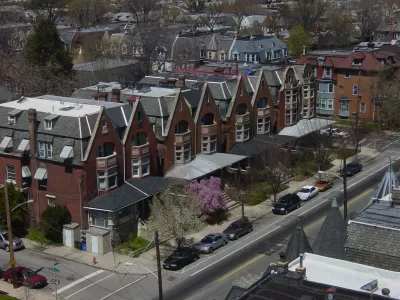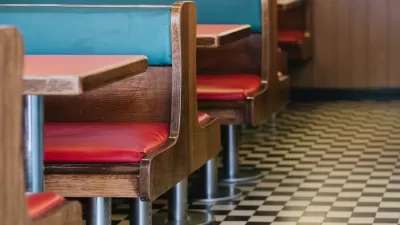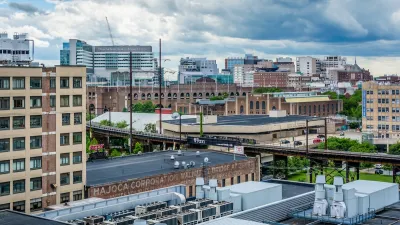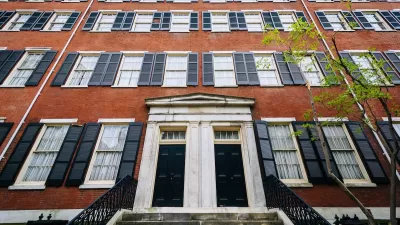The proposal would hold builders accountable for damage incurred to adjacent homes as historic rowhouse properties see increased redevelopment.

A bill proposed in the Philadelphia city council "would require builders to have general liability insurance that protects adjacent properties during construction or demolition." Writing in Temple University's Philadelphia News, Thomas Riese reports that the bill "would make builders accountable for damage that some homeowners have grappled with for years, sometimes without knowing where to turn for compensation."
Advocates of the bill say it would be a first step in protecting homeowners from damage and preventing dangerous practices, but "would like to see more protections passed as laws that could serve as a 'Neighbors Bill of Rights.'" Community activist Drew Miller "said he’d like to see more collaboration between city departments, especially before project permits are approved."
The city's Department of Licenses and Inspection "currently has 69,529 open requests or complaints, and roughly 32% of those pertain to building structures, licenses, and construction." In part due to the architecture of Philadelphia's iconic rowhouses, adjacent property damage is "frustratingly predictable," according to historic preservation professional Starr Herr-Cardillo. "On a rowhouse block, when they’re built at the same time, they’re one structure." In many cases, demolition requires underpinning, a process designed to reinforce the foundation and prevent instability in the surrounding buildings.
"Philadelphia has encouraged a development boom that spurred its economic growth, but residents and homeowners want to make sure they’re not taken advantage of along the way."
FULL STORY: Council proposal would add protections for adjacent property construction

Alabama: Trump Terminates Settlements for Black Communities Harmed By Raw Sewage
Trump deemed the landmark civil rights agreement “illegal DEI and environmental justice policy.”

Planetizen Federal Action Tracker
A weekly monitor of how Trump’s orders and actions are impacting planners and planning in America.

How Atlanta Built 7,000 Housing Units in 3 Years
The city’s comprehensive, neighborhood-focused housing strategy focuses on identifying properties and land that can be repurposed for housing and encouraging development in underserved neighborhoods.

In Both Crashes and Crime, Public Transportation is Far Safer than Driving
Contrary to popular assumptions, public transportation has far lower crash and crime rates than automobile travel. For safer communities, improve and encourage transit travel.

Report: Zoning Reforms Should Complement Nashville’s Ambitious Transit Plan
Without reform, restrictive zoning codes will limit the impact of the city’s planned transit expansion and could exclude some of the residents who depend on transit the most.

Judge Orders Release of Frozen IRA, IIJA Funding
The decision is a victory for environmental groups who charged that freezing funds for critical infrastructure and disaster response programs caused “real and irreparable harm” to communities.
Urban Design for Planners 1: Software Tools
This six-course series explores essential urban design concepts using open source software and equips planners with the tools they need to participate fully in the urban design process.
Planning for Universal Design
Learn the tools for implementing Universal Design in planning regulations.
Jessamine County Fiscal Court
Caltrans
Institute for Housing and Urban Development Studies (IHS)
City of Grandview
Harvard GSD Executive Education
Toledo-Lucas County Plan Commissions
Salt Lake City
NYU Wagner Graduate School of Public Service





























